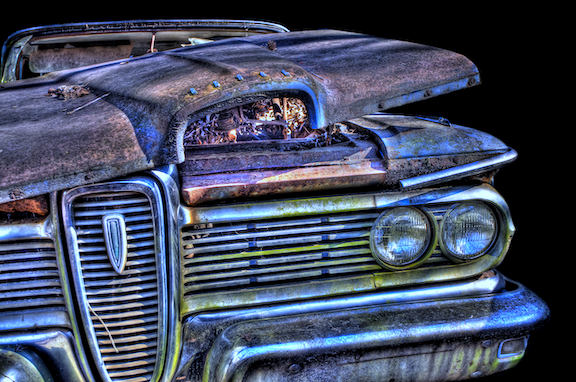The answer to the above question is, of course, “no.” That brand of the otherwise very astute Ford Motor Company went out of business in late 1959. Chances are management was slow in recognizing that the car-buying public had a number of choices that were more attractive than the Edsel. Or, perhaps, a strong-willed boss was making decisions based mainly on gut feel. Then, again, maybe it was the funny-looking grille that contributed to the brand’s demise. Who knows? Who will own up to the truth? And, these days, who cares?
There are hundreds of similar examples of brands that no longer exist. Worthington Pump is among them. (Many in the RAM community may remember the Worthington line.) Today, it may be good to remember what happened when the company’s innovators were sidelined, or its products were made just a little cheaper than those of the competition. (I knew about this in 1978, when I convinced my boss about certain cheap, vertical sump pumps that had been conceived in the late 1800s for vegetable-watering duty in an agricultural region of the country…) Anyway, Worthington was eventually absorbed by a company that had a clearer idea of where the market was likely to go—and that reliability professionals throughout industry would see no advantage in buying cheap irrigation pumps.
The opposite was true for names such as Cooper-Bessemer (CB), whose reciprocating compressors were exceptionally well built. As industry users began seeking lower-cost machines, though, Cooper’s superior equipment lost favor. Chances are that if CB had access to our compelling availability statistics for their reciprocating and barrel-style centrifugal compressors, this manufacturer could have done a better job in convincing customers about the brand’s above-average quality.
Then there are brands like a certain European beer, whose products proudly display an image of the gold medal the beer was awarded at the Paris World’s Fair in 1878—as if that award could influence beer-drinkers on what beer to imbibe in 2020. Moreover, with a few chemical plants just upstream of the brewer’s site, what are the chances that the water the brewery uses today has the same composition of trace chemicals, minerals, and metals that existed in 1878?
To the point: Some traditions may be good, others may be bad. In some instances, what was done more than 100 years ago may be relevant; in other instances, it is of no consequence whatsoever.
In the pursuit of optimized RAM in today’s plants and facilities, there is danger in blindly believing anecdotes delivered without context, opinions rooted in wishful thinking, and allegiances that benefit only one side. Consider this example: If ever I had the misfortune of being forced to consult an MD who ranked 2,767 out of 2,770 when he or she had graduated from med school only a month before, I would be looking for the nearest exit. Likewise, I would react the same way if I were to run into a “reliability professional” who uses a sledge hammer for every job.
Nest week, I’ll go into more detail on the importance of staying up to date, and using our brains rather than our guts when it comes to making decisions.TRR
Editor’s Note: Click Here To Download An Updated (May 2020) List Of Heinz Bloch’s 22 Books
ABOUT THE AUTHOR
Heinz Bloch’s long professional career included assignments as Exxon Chemical’s Regional Machinery Specialist for the United States. A recognized subject-matter-expert on plant equipment and failure avoidance, he is the author of numerous books and articles, and continues to present at technical conferences around the world. Bloch holds B.S. and M.S. degrees in Mechanical Engineering and is an ASME Life Fellow. These days, he’s based near Houston, TX. Email him directly at heinzpbloch@gmail.com.
Tags: reliability, availability, maintenance, RAM, professional development



